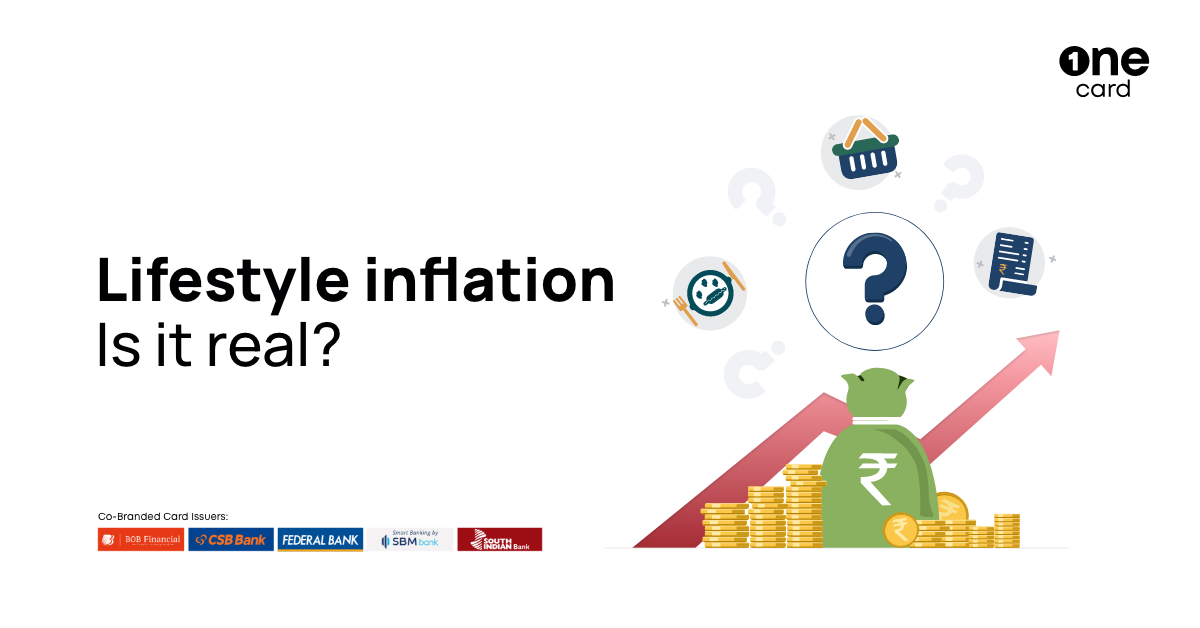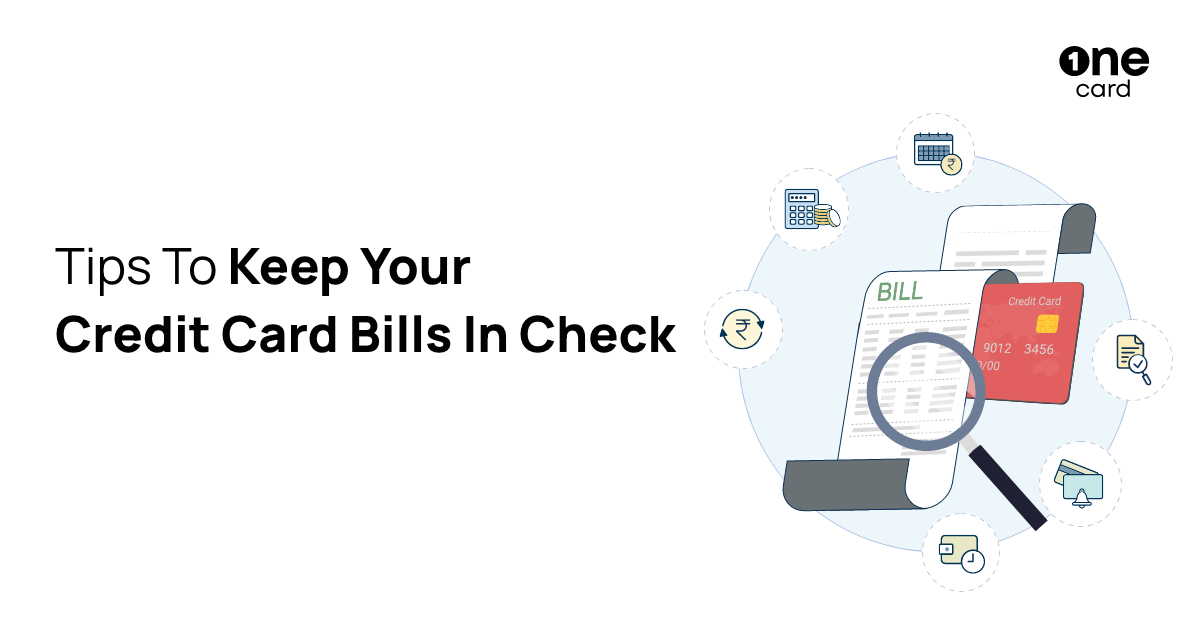How To Manage Lifestyle Inflation
By OneCard | August 11, 2023

Have you ever felt that no matter how much you earn, somehow you always struggle to manage all your expenses? You try to convince yourself that the next hike or bonus will make things better. But in reality, it just never happens.
This situation where expenses rise with a rising income is commonly known as lifestyle inflation. However, if you look at it objectively, you may wonder if lifestyle inflation is real. Let’s do a deep dive.
The Real Causes of Lifestyle Inflation
While lifestyle inflation is commonly attributed to an increase in income, here are some real reasons why you may fall prey to it:
1. Not wanting to miss out
At some point or another, we’ve all been guilty of buying something just because all of our friends have it. There’s no harm in pampering yourself once in a while. But it is important to budget for things instead of buying them on impulse.
2. Not thinking ahead
We can all remember our parents and grandparents keeping small diaries to note down their daily expenses. Most of us don’t need to keep tabs on the 10 rupees we spent on chai or the 50 rupees we spent on a club sandwich. However, if we have a big expense planned for, say, Diwali, it is important to plan ahead for it. Without doing so, your budget will suddenly shoot up in that particular month. And the pattern will repeat whenever you have big expenses lined up.
3. A sudden change in lifestyle
Let’s say you got a new job with a good raise. Let’s say earlier you were barely able to manage your daily expenses, and now you have some discretionary money. Instead of suddenly increasing your spending on discretionary items such as shopping, dining, or entertainment, you can gradually upgrade your lifestyle by allocating a specific budget for discretionary items. If you don’t plan things properly, you may end up spending more than intended on discretionary items and then struggle to manage your money for essentials.
Is it bad to treat yourself well? How to stay in charge of things?
1. Practise delayed gratification
Instead of buying everything you want right away, try delaying your purchases by a few weeks or a month. If you still feel strongly about buying that thing, you can go ahead and buy it. But in some cases, you may not feel as strongly about it as you felt earlier and can thus control your spending. Alternatively, you can time your discretionary purchases for those months when you do not have big expenses lined up or when there are offers running on shopping platforms.
2. Set a budget
You don’t need to start living like a monk to save money. Simply making a budget and sticking to it can help you keep your bills in check. Set a budget that takes into account your monthly income, your financial goals, and your needs. If you are using OneCard, you get Spends Planner as an in-built feature. It lets you manage your monthly expenses through a budget, visual analysis of your spends,timely alerts and more!
3. Use fewer modes of payment
Rather than using multiple modes of payment like cash, debit cards, or credit cards, try to stick to one or two modes of payment. For example, for utility bills and shopping, you can use a credit card. This will also help you avail of an interest free credit period and keep your bank balance intact for emergencies. For buying inexpensive items such as vegetables, especially if you buy them at local shops, you can use UPI. Keeping all your spending on a credit card will help you get a better idea of your overall expenses. If you use multiple modes of payment, you may lose track of how much money you need on a monthly basis and find yourself in a cash crunch at the end of the month.
4. Avoid debt trap
Credit cards can be one of the best ways to enjoy flexibility and affordability. However, it is important to spend only as much as you can pay off every month. Don’t consider credit cards as a source of funds.
Also Read : What Is Debt Trap and How to Avoid It?
Bottom Line
Living like a college student for the rest of your life is not what it means to be smart about life. If you have worked hard to achieve your dreams, do not feel bad about living the life you have always wanted. Plan ahead and be smart with your money to keep your spending in check and improve your overall financial health.
**Disclaimer: The information provided in this webpage does not, and is not intended to, constitute any kind of advice; instead, all the information available here is for general informational purposes only. FPL Technologies Private Limited and the author shall not be responsible for any direct/indirect/damages/loss incurred by the reader for making any decision based on the contents and information. Please consult your advisor before making any decision.



Sharing is caring 😉